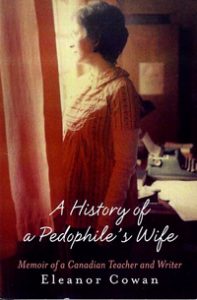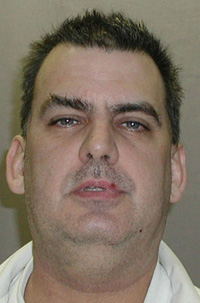 By Eleanor Cowan
By Eleanor Cowan
In our family of ten children, our main objective was not to recognize the gross abnormalities of how we were treated, but to quell them. When a storm erupted, we’d leap into action. Unpredictable rages meant that we, Mother’s children, speedily grouped to control the situation and do as needed to quiet her distress and end the drama.
Lightning-fast signals fired between us: “Storm clouds overhead,” I’d say, or “Hurricane Warning!”
If Mother was revving up for a full-scale crackdown, “Earthquake! Earthquake!” would be whispered as we gathered our younger siblings to dash outside or hide in the basement.
Usually, one of us would front the voluble outrage, the insults and screaming about how our mother was a victim of selfish children whose never-ending needs and wants were driving her crazy.
Maybe someone forgot to put the top on the ketchup bottle, again, or one of us failed to get home on time after school to awaken, dress and take care of the toddlers who napped for three hours every afternoon while our mother slept in her locked bedroom. Our selfish dawdling after school meant it would be hard to get the kids back into bed by 7 p.m. Special arrangements had to be made between us if one of us wanted to do anything different after school, other than come right home.
Mother’s lashing out could take the form of slaps across the face or on the back of the head. She waved a Mexican horse whip and a long black leather strap under our noses. While these hurt, the insults, mostly to our intelligence, hurt most of all. “How incredibly stupid can one human being manage to be? You stupid twit!” Mother would scream, or “Get your long donkey face out of my sight, you idiot!”
Earlier, Mother’s rages would be directed at an older brother, for his “failure to comprehend” repeated instructions for the daily cooking or cleaning required of him. Once Gordy began to earn an academic reputation at high school, though, Mother backed off and turned to her daughters.
One Saturday, when our mother was upset and screaming, little Paddy, our four-year-old with an asthma condition, ended up in hospital – again. For the third time that summer, he’d made his way outside and found a mound of small pebbles. One after the other he stuffed the tiny stones up his nose and deep into both ears. Fortunately, the local hospital was across the street so that once he was discovered, unconscious, the doctor quickly cleared his ears and nose and gave him oxygen. The hospital administration had a little meeting with our mother, who came home seeing red. Paddy’s crisis was all our fault. Once Dad got home from his regular six-week business trip and heard about Paddy’s near-death, he expressed his “serious disappointment” in all of us.
Rosie began to pull out hair on the back of her head, strand by strand until a bald patch appeared. She bit her fingernails down to the quick where tiny droplets of red blood oozed from her finger tips. Irene withdrew into a cocoon. She began to hide little treats for herself under her clothes in our dresser. Rosa and Irene became mother’s reliable slaves, spending all their free time cooking, cleaning and caring for the younger children. They had no friends and missed a ton of school. Mona began to wear white cotton gloves to soak up the copious amounts of sweat on her palms. Another sibling got terribly upset if the salt shaker on the counter did not align perfectly with the pepper shaker. They had to stand side by side. And dinner plates had to be placed equidistant one from the other on the supper table.
Just after Paddy’s last nose and ear clearing, I got permission to have a money-making paper route. I delivered my papers, bought the daily chocolate bars that made me feel better – and, importantly for me, looked into a lot of different living rooms and kitchens on each collection day. It was a first introduction to different ways of family living.
Eleanor Cowan is author of “A History of a Pedophile’s Wife,” which is available on Amazon.com. Visit her at eleanorcowan.ca




































 3 Steps to begin dating again after the sociopath
3 Steps to begin dating again after the sociopath
Donna Andersen
Eleanor – I am astounded at what you and your brothers and sisters endured as children. The psychological damage that your mother’s behavior inflicted on your brothers and sisters is heartbreaking.
Thank you for sharing your story. It is so important that we know about personality disorders, and what can happen to their children.
Infinity
I see all this self inflicting of pain by the children a result of unexpressed anger. I had a very similar mother, also a narcissist. In many ways worse. I did not do any harm to myself. Instead my body became sick. I remain with auto immune disease to this day even after her death. This is all unresolved grief.